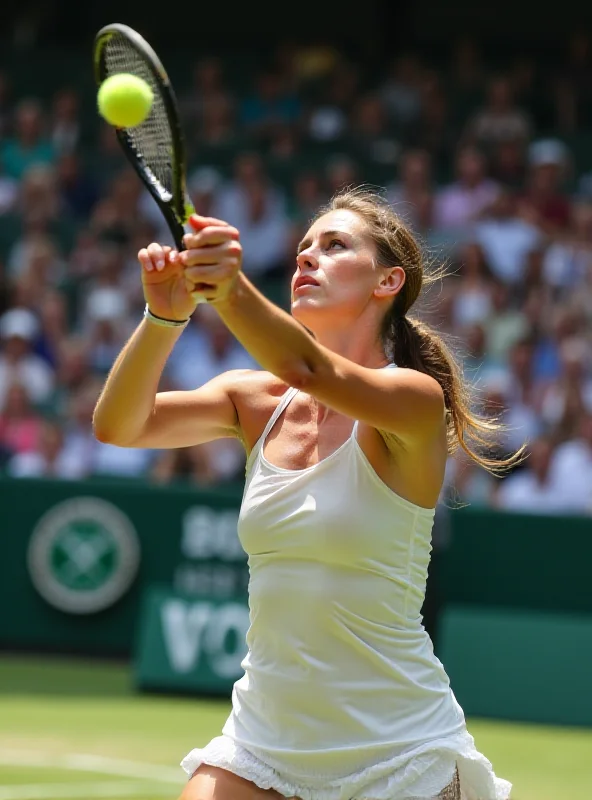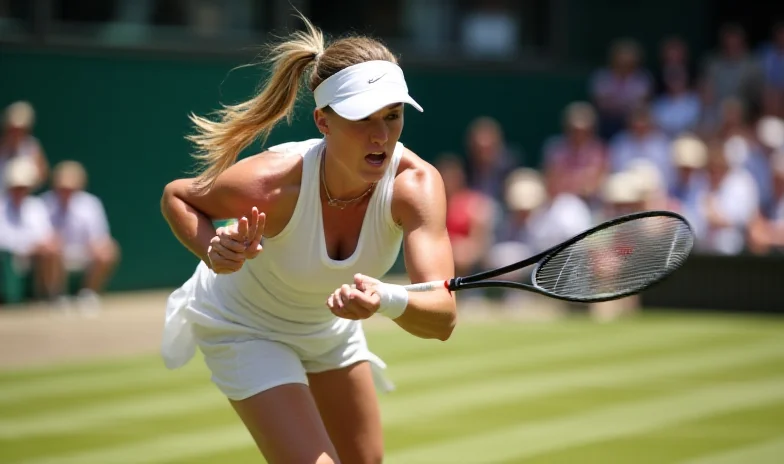The world of professional tennis is a whirlwind of fierce competition, demanding travel schedules, and intense public scrutiny. While fans eagerly anticipate thrilling matches and emerging rivalries, the reality for many athletes includes navigating personal challenges, ethical dilemmas, and even threats to their safety.
Raducanu Returns to Indian Wells After Dubai Incident
Emma Raducanu, the young British sensation, is set to return to the court at the BNP Paribas Open in Indian Wells. This comes shortly after a distressing incident at the Dubai Tennis Championships. According to the WTA, Raducanu was approached by a man displaying "fixated behaviour" before her match against Karolina Muchova. Raducanu was visibly shaken, seeking refuge behind the umpire's chair after spotting the man near the court.

Organizers at Indian Wells are reportedly taking extra precautions to ensure Raducanu's safety. The incident in Dubai has sparked a broader conversation about the safety and security of female athletes, especially in the age of social media and heightened public attention. This incident highlights the constant balance athletes must strike between engaging with fans and maintaining personal safety.
Ethical Concerns Surround Rybakina's Coach
Meanwhile, Jelena Rybakina, another prominent figure in women's tennis, faces a different kind of challenge. Reports indicate that Rybakina continues to work with her coach, Stefan Vukov, despite his past actions which resulted in a penalty from the WTA for psychological and physical abuse. This has raised eyebrows and sparked debate within the tennis community. Some, like Barbara Schett, have commented on Rybakina's mental state, suggesting she may be avoiding the locker room due to fear.
The situation with Rybakina and Vukov underscores the complex power dynamics within the coach-athlete relationship. The WTA's previous action against Vukov suggests a recognition of the severity of his past behavior, yet Rybakina's continued association with him raises questions about the support systems available to athletes in abusive situations and the long-term impact of such relationships.

The Bigger Picture: Balancing Access and Protection
These individual stories highlight a larger issue within women's sports. As the popularity of women's tennis and other sports continues to grow, so too does the pressure on athletes. There's a constant tension between providing access to fans and ensuring the safety and well-being of the players.
The question arises: "How can we find the balance between access to players as well as providing them with the protection that ensures their safety?" As one article asks, "When did we stop seeing those in the limelight – be it athletes, musicians, film stars or anyone else – as human?"

The challenges faced by Raducanu and Rybakina serve as a reminder that success on the court is only part of the story. The ongoing debate about ethical coaching practices, the need for increased security measures, and the importance of respecting athletes' personal boundaries are crucial conversations that must continue to shape the future of women's tennis and sports in general.
Men's Tennis Rivalries and the Absence of Sinner
Adding another layer to the complexities of the tennis world, the men's side faces its own unique challenges. While fans eagerly anticipate the start of the PNB Paribas event at Indian Wells, the absence of Jannik Sinner due to a doping ban casts a shadow. This absence raises concerns about the potential delay in the emergence of the next great tennis rivalry. Sinner's ban, while "inadvertent," highlights the ever-present pressures and potential pitfalls within the sport.
Whether it's the pressure of competition, the ethical considerations of coaching, or the need for increased security, the lives of tennis stars are filled with challenges both on and off the court. As fans, it's important to remember the humanity of these athletes and to support efforts that prioritize their safety and well-being.
